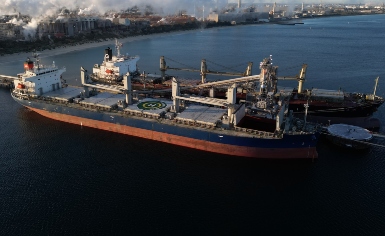
The MAIB has issued an accident investigation report into the lifeboat davit failure aboard RRS Sir David Attenborough. On the 4 March 2021, the port lifeboat from RRS Sir David Attenborough fell into the water while the crew were practising lifeboat drills. The investigation found that a critical interlock device on the lifeboat davits had heavily corroded due to lack of maintenance. The interlock failed to operate correctly and subsequently caused the lifeboat to fall from the davit and into the sea with three crew on board. It also found that the installation of the lifeboat davits was not in accordance with the manufacturer’s instructions and did not meet international regulations. Continue reading “RRS Sir David Attenborough lifeboat davit failure report issued”










